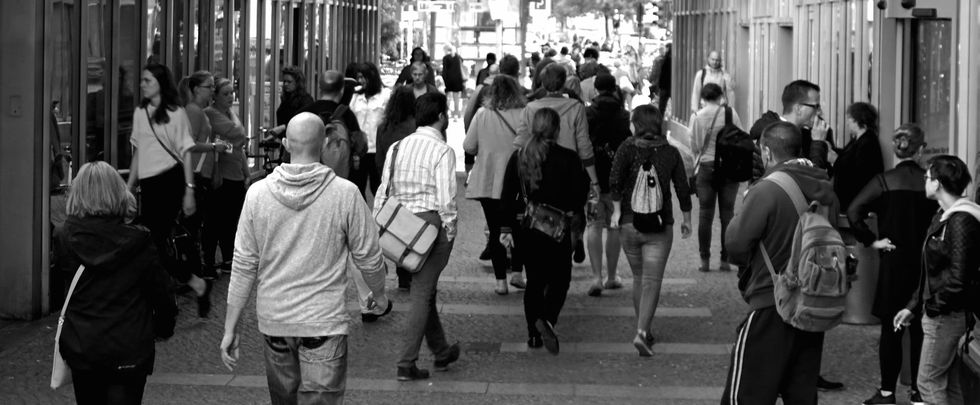By nature, most things aren't good or bad. They just are, and that statement and line of thinking is directly in conflict with a thought most of us have on a daily basis: am I a good person or a bad person?
Jen Kim of Psychology Todayexplores her own personal experience with this question in an article titled, "How to Know if You Are a Good Person." She goes to a tarot reader named Avery with a friend during a trip to New Orleans. Avery asked her what she wanted to know, and she asked a question that surprised both herself and Avery:
"Am I a good person?"
Kim notes next that the questions that ask if someone is a good person is "at best, they are annoying attempts for compliments, and at worst, they are an open invitation to attack one's fragile self-concept." That's what those questions are when you ask people close to you, whether it's friends or family. But in this case, Avery was a complete stranger to Kim with no vested interest in lying or being sensitive with feelings, mostly because Avery would never see Kim again. He told her that the "very act of asking the question suggests that I am indeed a good person." But Kim suggested that the opposite was true, that she would only ask if she was a good person if she, to some extent, doubted that she was.
According to Sigmund Freud, in The Nature of Man, humans are inherently selfish and focused only on their individual survival. Our nature is to be bad people and not good, and Freud writes that humans aim to satisfy psychoanalytic needs of "self-preservation, aggression, need for love, and the impulse to attain pleasure and avoid pain." As such, as humans, we have an "innate drive for self-preservation [that is] deeply at odds with society's view that we should all live in harmony (or to be good)." Freud then tells us that we are all bad people that are just forced to conform to the idea of being good.
But Freud was wrong about almost everything. Kim then helps us explore what science really says. One Yale University study showed babies a short play in which a puppet was attempting to climb a hill. Two other puppets would join in and either help the puppet climb the hill, or hinder it from being able to climb. When given a choice between the helper or hinderer puppets, babies were more likely to choose the helpers. These babies hence have an instinct to prefer good over evil, and that infants, at the very least, prefer prosocial over antisocial behavior, and that humans are inherently good, not bad.
But while we may inherently be good and altruistic by nature, Kim argues that our environments get in the way. One researcher, Dacher Keltner, a professor at UC Berkeley, argues that we are both good and bad. 60% of the time, we're motivated by the personal gratification to survive, but the other 40% of the time, we're acting altruistically and helping others, "sacrific[ing] and risk[ing] exploitation." Helping others then becomes personally fulfilling, and that's why we're driven to be good and altruistic people.
Interestingly, Kim closes out her article wondering whether the conversation of if you're a good or bad person is a good conversation to have in the first place. And I agree that the evaluation of yourself as a person is counterproductive. If you think you're a good person and you eventually do something that hurts people, as every human does, you start to question yourself too much instead of moving forward with your life. If you think you're a good person and you keep doing good works, you're likely to think too highly of yourself and be prone to self-worship.
Maybe, at the end of the day, we're not good or bad people. It's the second word that matters: we're all just people, capable of doing good to others and capable of also doing wrong. I wrote earlier about how life doesn't get easier, and we just get stronger, meaning that a conversation that focuses so much on evaluating yourself may ultimately be time wasted, and instead focusing on relationships and connections is the ultimate way to deal with self-doubt, tough times, and hard circumstance. The common saying that "when life hands you lemons, make lemonade" is made a lot easier when you have people with you, helping you make lemonade.
So we can never brush across our lives as all-good or all-bad people. We're a combination of both, and we just are people. The bad things we done will always be a part of us, and we have to accept them, just as the good things we've done will always be a part of us. We need to be at peace with all the things that make us who we are to move forward, all of them. I know that I've exhibited compassionate and kindness in a lot of areas of my life, and I've also neglected and unintentionally harmed the people I'm close with too. That's just what life is.
So we're not good or bad people. We're both. We're complicated.

















